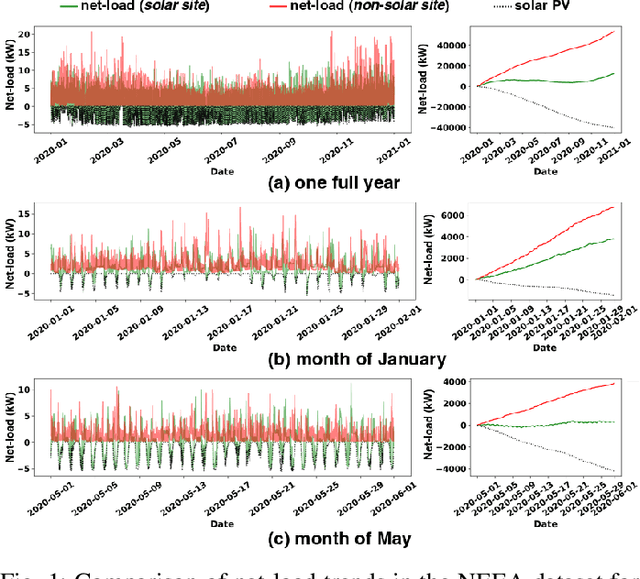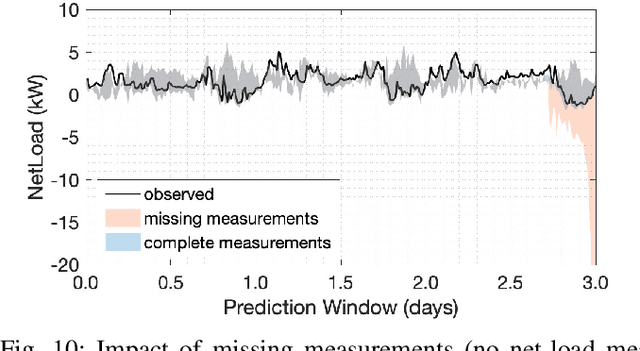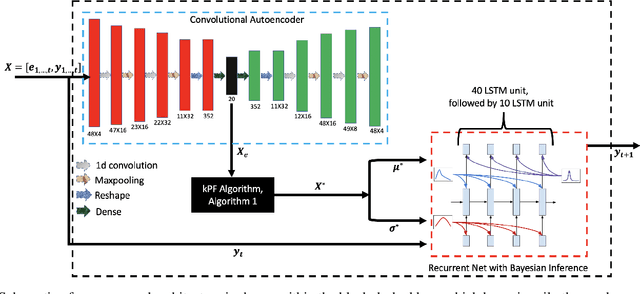KPF-AE-LSTM: A Deep Probabilistic Model for Net-Load Forecasting in High Solar Scenarios
Paper and Code
Mar 05, 2022



With the expected rise in behind-the-meter solar penetration within the distribution networks, there is a need to develop time-series forecasting methods that can reliably predict the net-load, accurately quantifying its uncertainty and variability. This paper presents a deep learning method to generate probabilistic forecasts of day-ahead net-load at 15-min resolution, at various solar penetration levels. Our proposed deep-learning based architecture utilizes the dimensional reduction, from a higher-dimensional input to a lower-dimensional latent space, via a convolutional Autoencoder (AE). The extracted features from AE are then utilized to generate probability distributions across the latent space, by passing the features through a kernel-embedded Perron-Frobenius (kPF) operator. Finally, long short-term memory (LSTM) layers are used to synthesize time-series probability distributions of the forecasted net-load, from the latent space distributions. The models are shown to deliver superior forecast performance (as per several metrics), as well as maintain superior training efficiency, in comparison to existing benchmark models. Detailed analysis is carried out to evaluate the model performance across various solar penetration levels (up to 50\%), prediction horizons (e.g., 15\,min and 24\,hr ahead), and aggregation level of houses, as well as its robustness against missing measurements.
 Add to Chrome
Add to Chrome Add to Firefox
Add to Firefox Add to Edge
Add to Edge